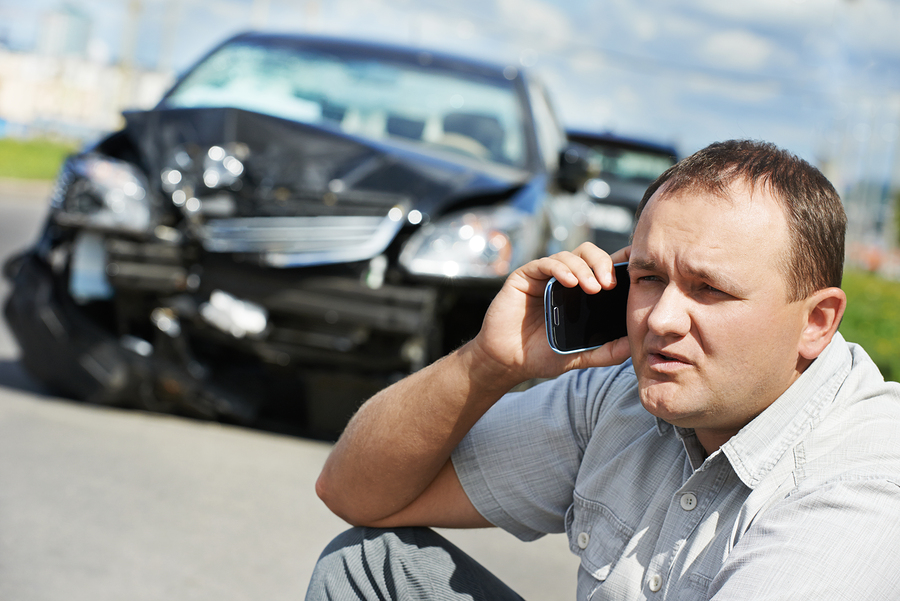Automobile accidents on America’s busy roadways—from minor fender-benders to fatal pile-ups—are more common than you may imagine. According to data from the National Highway Traffic Safety Administration, 9,387,000 passenger vehicles were involved in police-reported traffic crashes in 2012. More than 35,000 of these vehicles were involved in fatal crashes, 21,667 occupants lost their lives, and 2.09 million were injured.
While auto accidents are always stressful, it’s important to remain calm and take the necessary steps to ensure injured parties receive medical attention and you’re prepared to submit an auto insurance claim. Experts recommend the following:
- If the accident appears to be minor, move your car to a safe place, out of traffic. This may be the shoulder of the highway or a nearby side road or parking lot.
- Check yourself and your passengers for injuries. If another vehicle was involved in the accident, ascertain if the passengers within it are okay. When in doubt, call an ambulance.
- Turn on your vehicle’s hazards lights. If you have cones, warning triangles or emergency flares in your trunk—and you are still on the roadway or shoulder—use them.
- Call the police, even if the accident is minor or other parties involved suggest that you don’t contact law enforcement.
- Call your insurance agent while you’re waiting for the police to arrive.
- Use your cell phone to take pictures of the accident location and any damage on all vehicles involved.
- If there were witnesses to the accident (pedestrians, uninvolved drivers who stopped to make sure everyone was okay), get their names and phone numbers.
- Note the names, addresses and phone numbers of the other drivers. Write down their license plate numbers, vehicle identification numbers and auto insurance information as well. Some insurance companies offer free mobile apps to help you collect these details.
- Do not admit fault for the accident, even if you think you are to blame. Don’t discuss the accident with other involved drivers and passengers. That said, be as polite as possible.
- Do not sign any documents that your insurance agent or the police do not require.
- Collect the name, badge number and phone number of the police officer investigating your accident. Ask for a copy of the accident report as well, though you may need to wait a day or so for the officer to file it. This report will include the officer’s assessment of the accident, which can be helpful if the parties involved do not agree on who was at fault.
The claims process itself may vary by insurance company. If you’d like to find out more about what to expect when filing a claim through your auto insurance provider—or ask other questions about your policy—contact your insurance agent.

